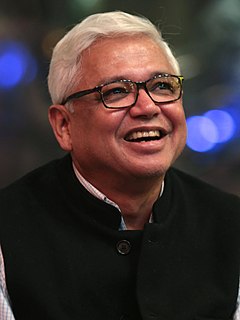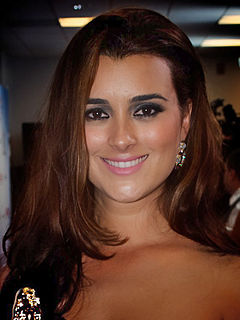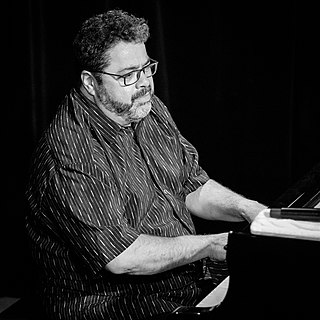A Quote by Amitav Ghosh
You see, in our family we don't know whether we're coming or going - it's all my grandmother's fault. But, of course, the fault wasn't hers at all: it lay in language. Every language assumes a centrality, a fixed and settled point to go away from and come back to, and what my grandmother was looking for was a word for a journey which was not a coming or a going at all; a journey that was a search for precisely that fixed point which permits the proper use of verbs of movement.
Related Quotes
When you are waiting for a train, don't keep perpetually looking to see if it is coming. The time of its arrival is the business of the conductor, not yours. It will not come any sooner for all your nervous glances and your impatient pacing, and you will save strength if you will keep quiet. After we discover that the people who sit still on a long railroad journey reach that journey's end at precisely the same time as those who "fuss" continually, we have a valuable piece of information which we should not fail to put to practical use.
The theater, which is in no thing, but makes use of everything - gestures, sounds, words, screams, light, darkness - rediscovers itself at precisely the point where the mind requires a language to express its manifestations.... To break through language in order to touch life is to create or recreate the theatre.
I am somewhat uncertain whether there is a definite factual question as to whether natural language handles truth-value gaps. Nor am I even quite sure that there is a definite question of fact as to whether natural language should be evaluated by the minimal fixed point or another, given the choice of a scheme for handling gaps. We are not at the moment searching for the correct scheme.
I think the most important work that is going on has to do with the search for very general and abstract features of what is sometimes called universal grammar: general properties of language that reflect a kind of biological necessity rather than logical necessity; that is, properties of language that are not logically necessary for such a system but which are essential invariant properties of human language and are known without learning. We know these properties but we don't learn them. We simply use our knowledge of these properties as the basis for learning.
Every artist is linked to a mistake with which he has a particular intimate relation. There is the mistake of Homer, of Shakespeare — which is perhaps, for both, the fact of not existing. Every art draws its origin from an exceptional fault, every work is the implementation of this original fault, from which come to us a new light and a risky conception of plenitude.
The journey homewards. Coming home. That's what it's all about. The journey to the coming of the Kingdom. That's probably the chief difference between the Christian and the secular artist--the purpose of the work, be it story or music or painting, is to further the coming of the kingdom, to make us aware of our status as children of God, and to turn our feet toward home.
The worst of this sorry bunch of semi-educated losers are those who seem to glory in being irritated by nouns becoming verbs. How dense and deaf to language development do you have to be? If you don’t like nouns becoming verbs, then for heaven’s sake avoid Shakespeare who made a doing-word out of a thing-word every chance he got. He TABLED the motion and CHAIRED the meeting in which nouns were made verbs



































